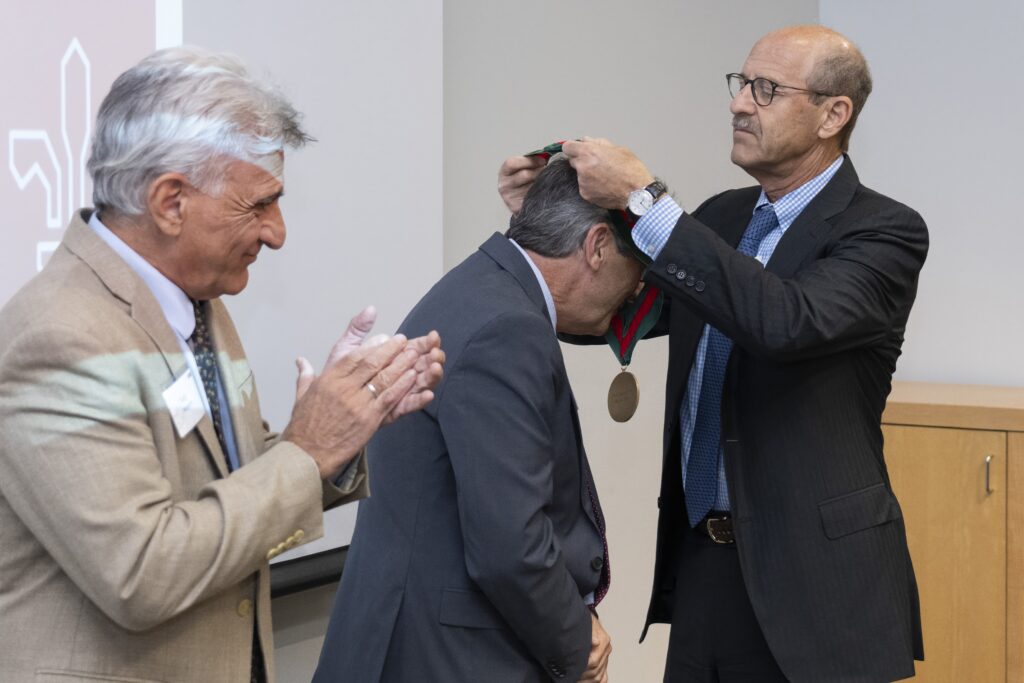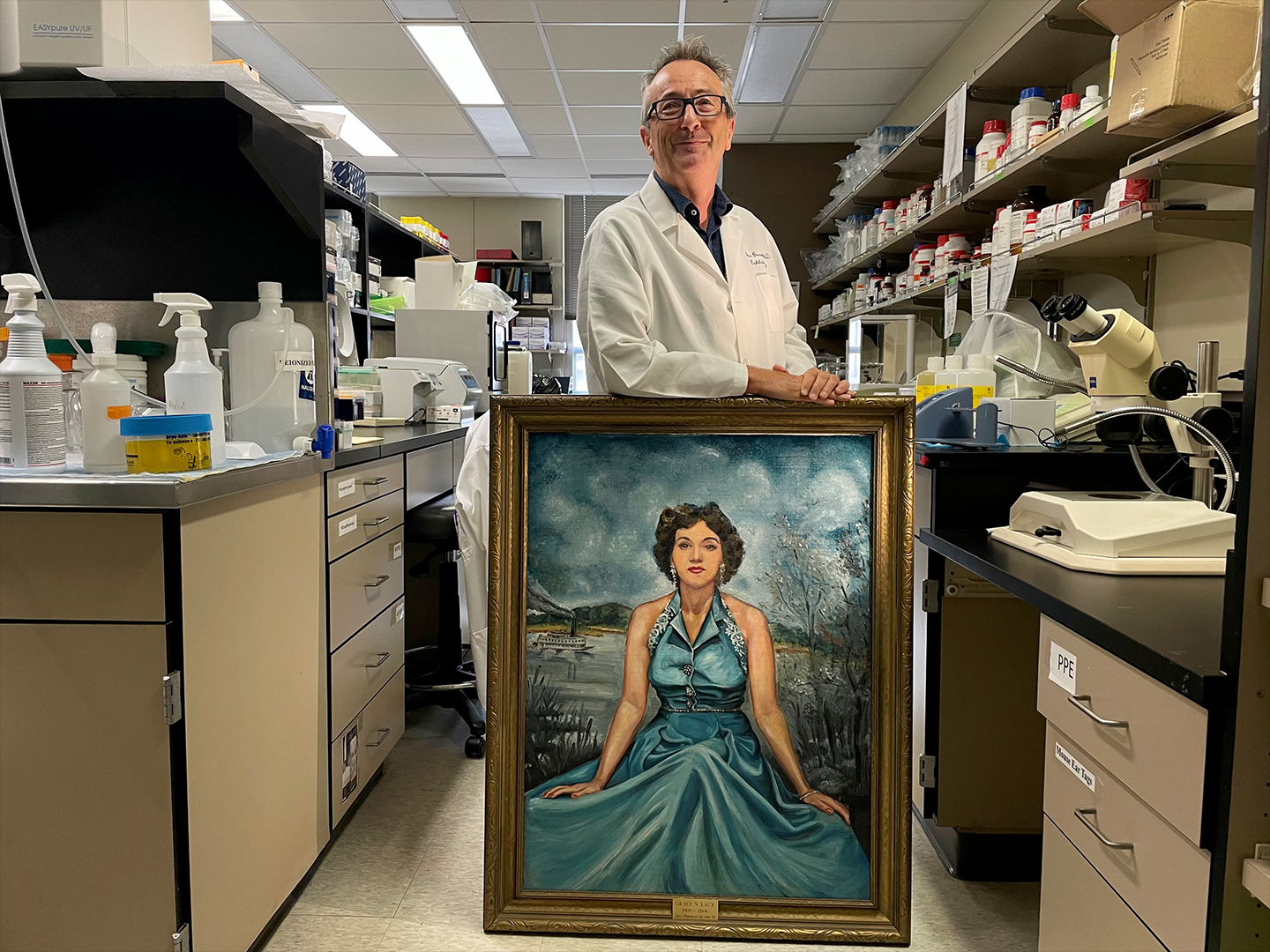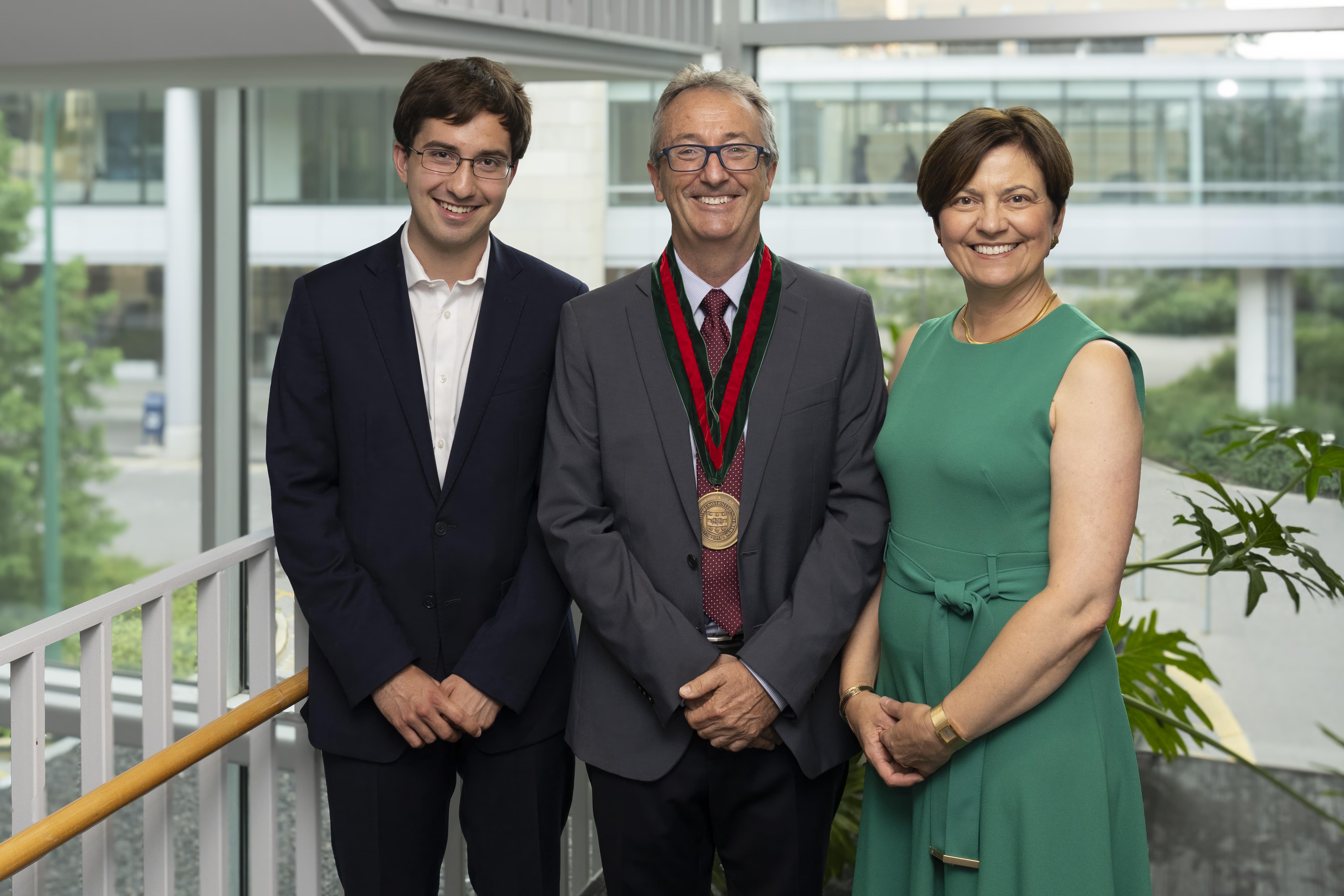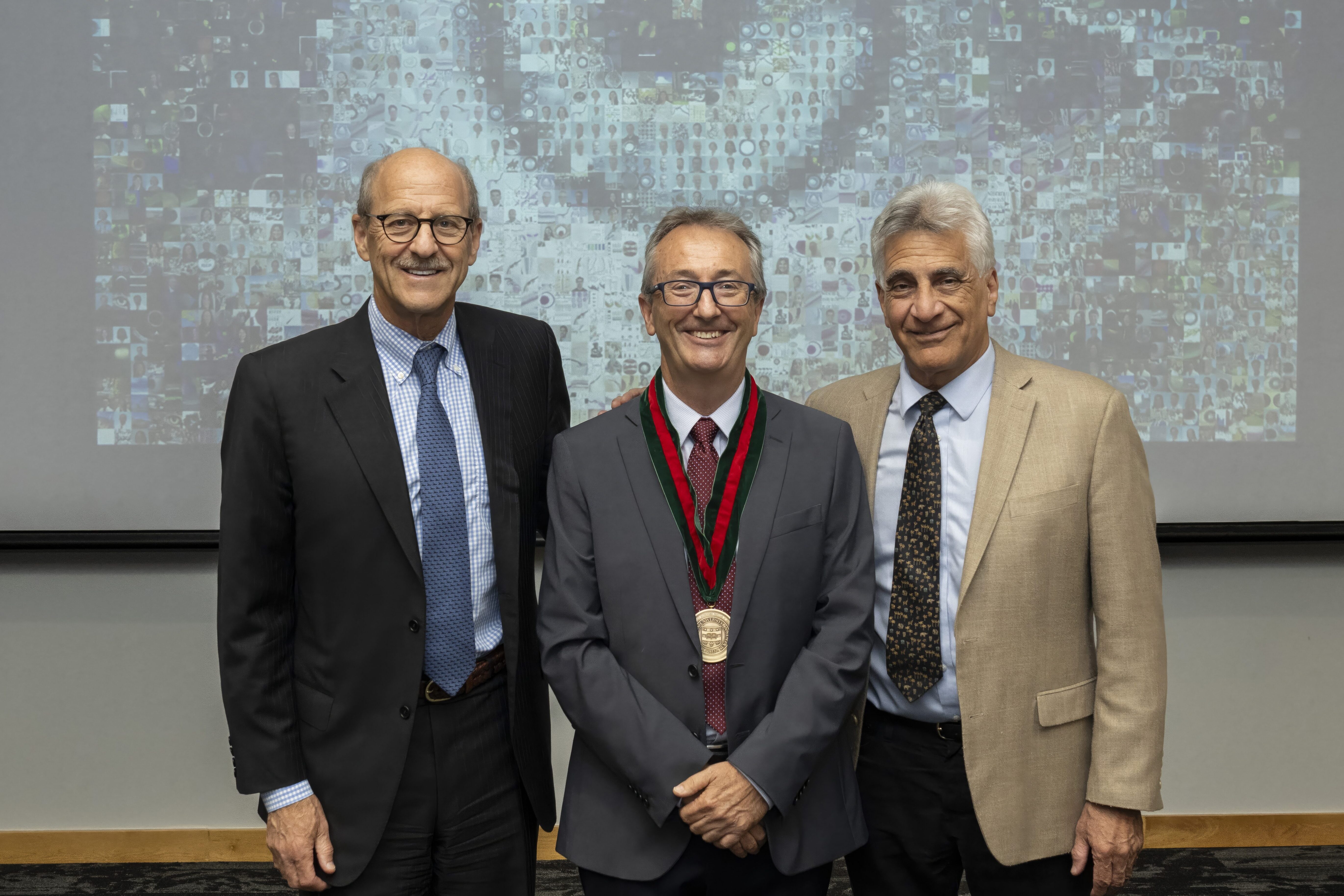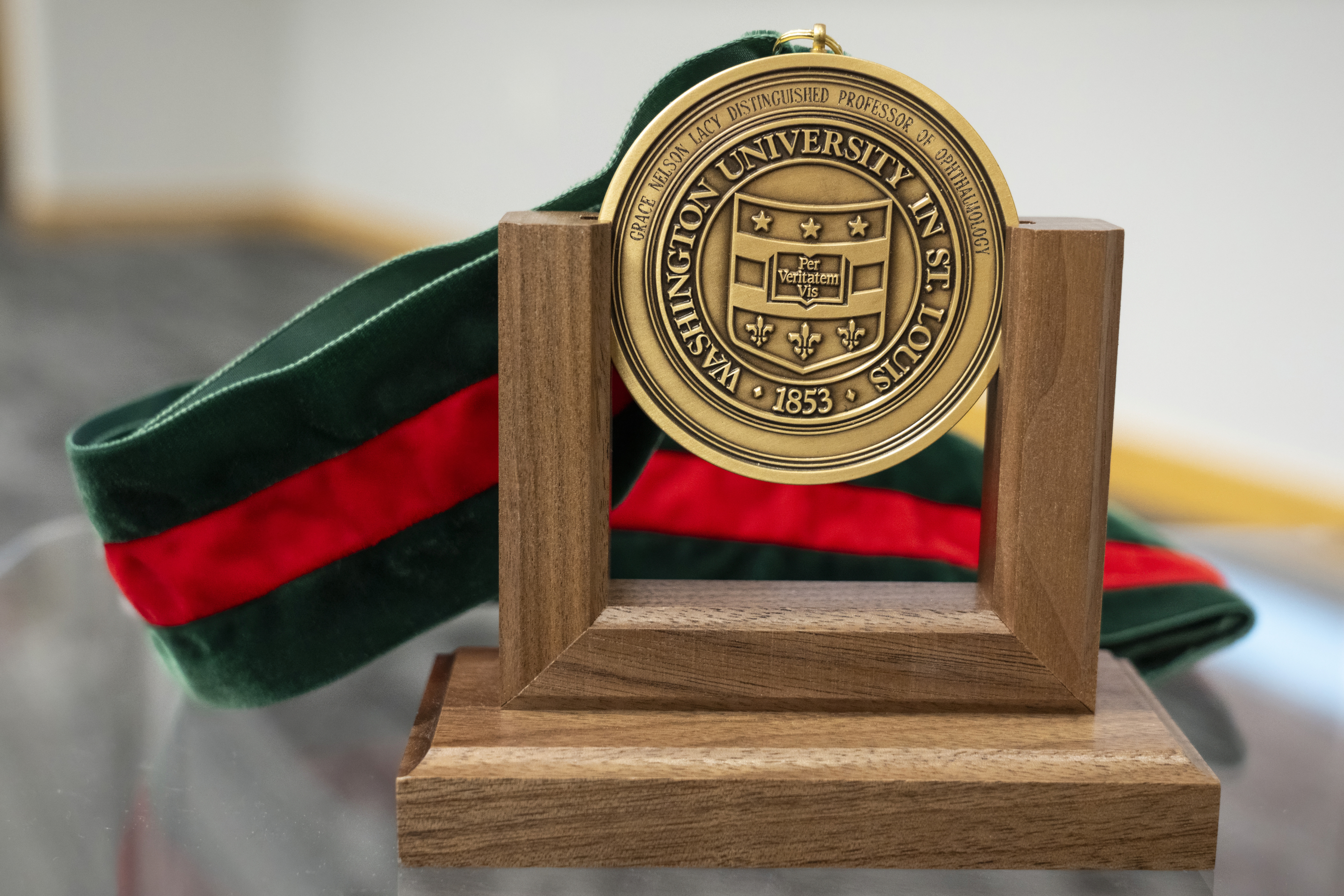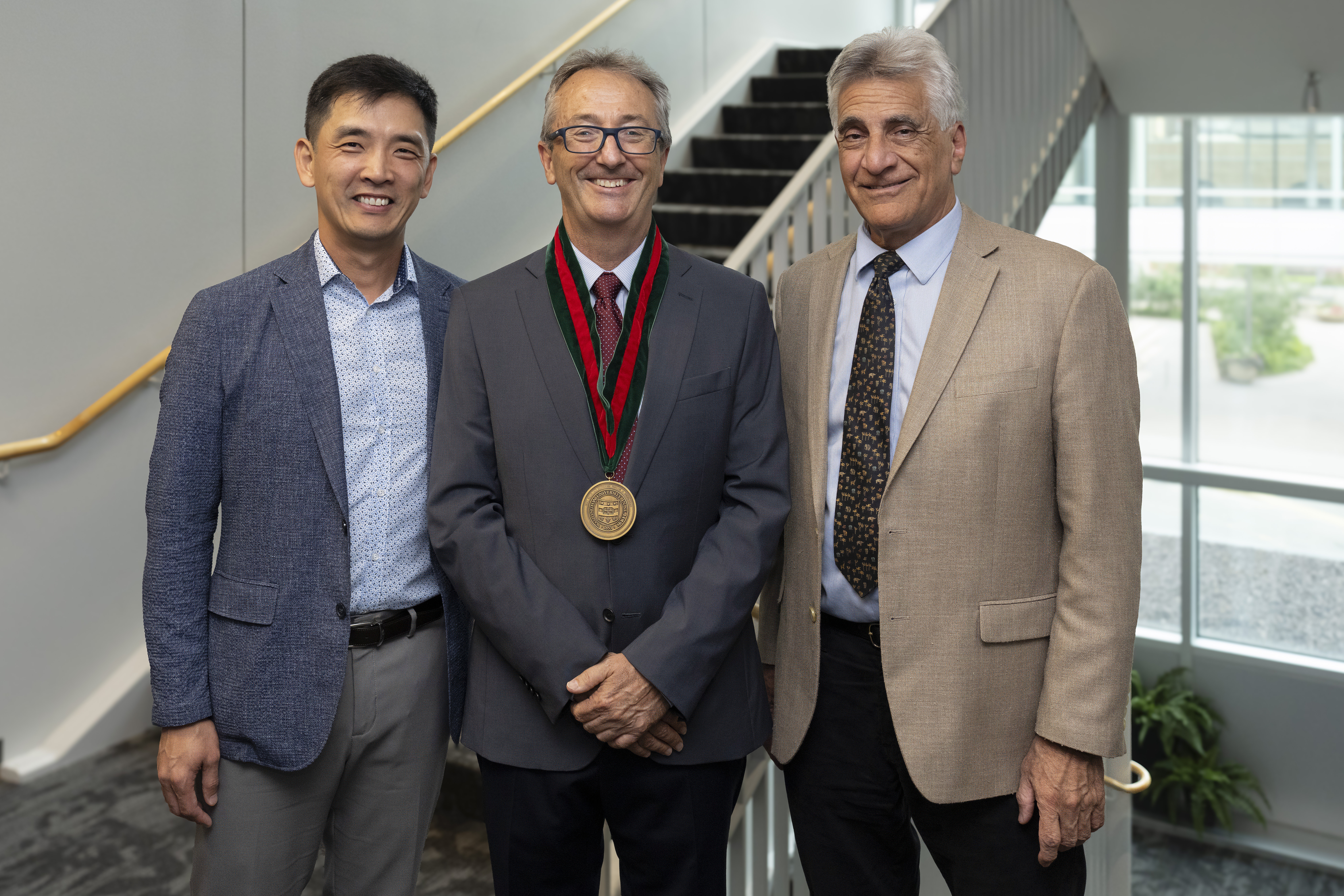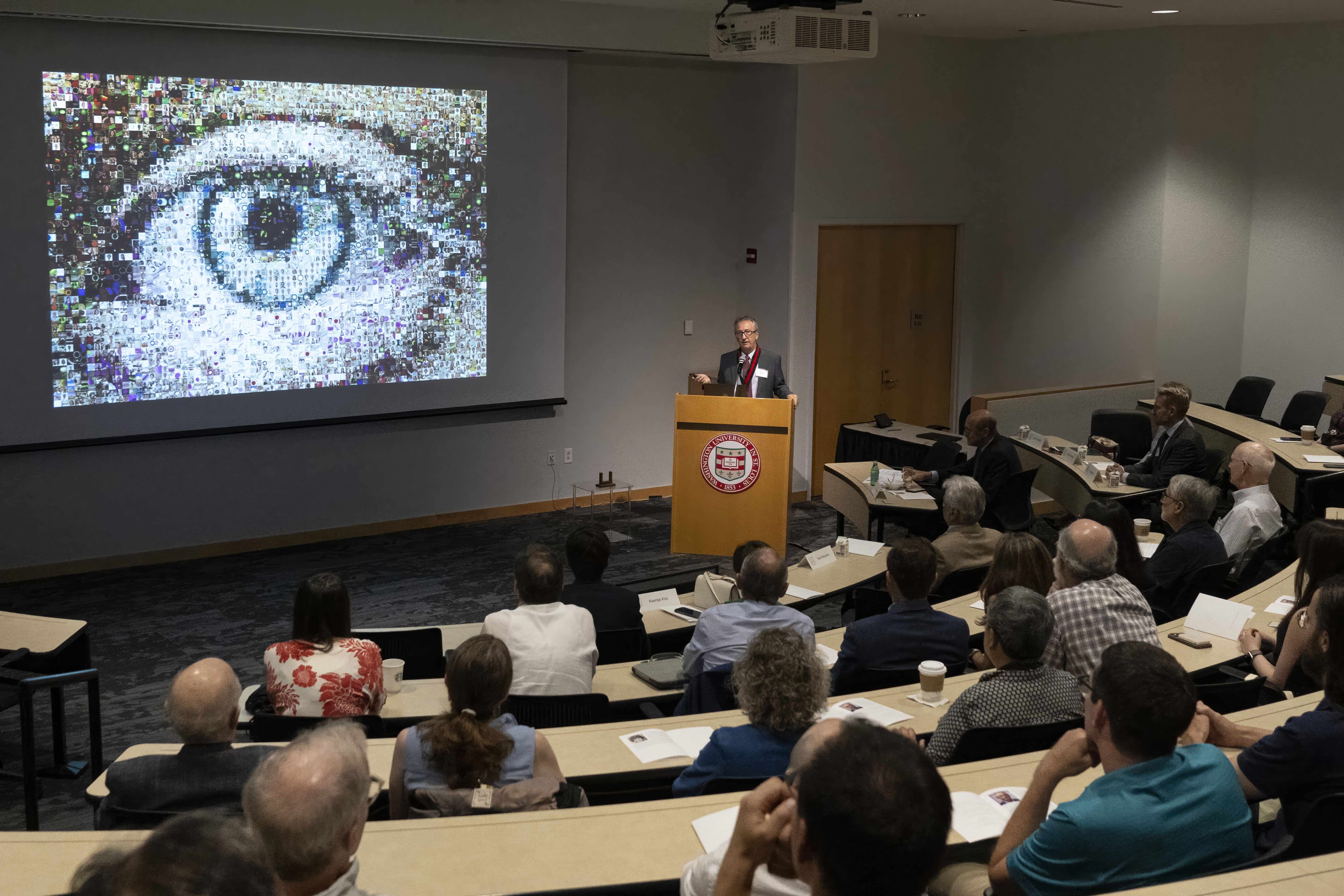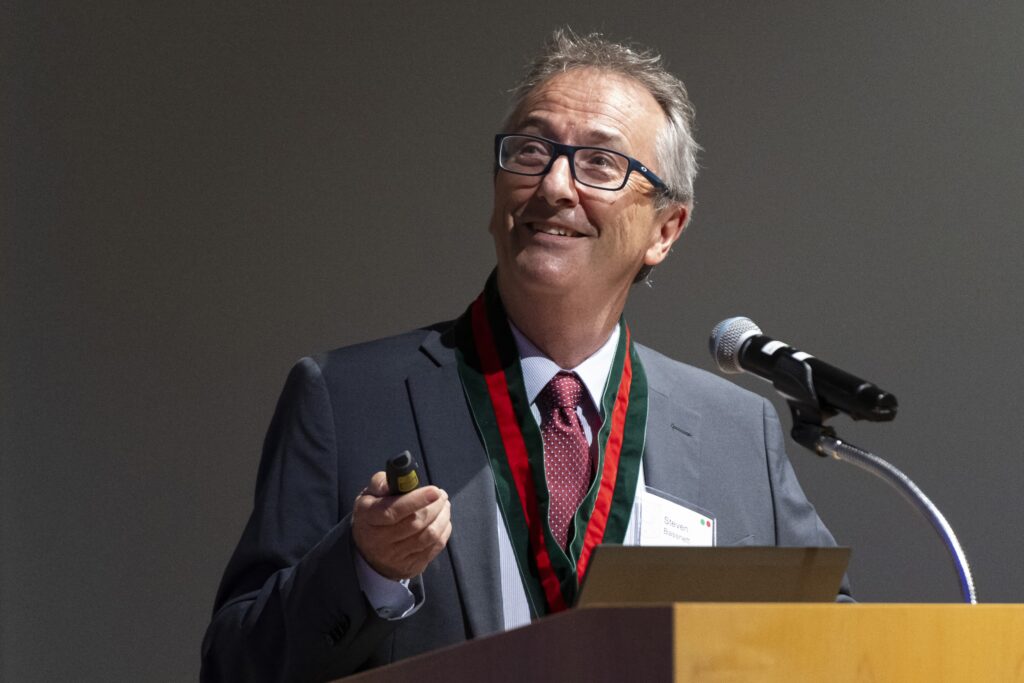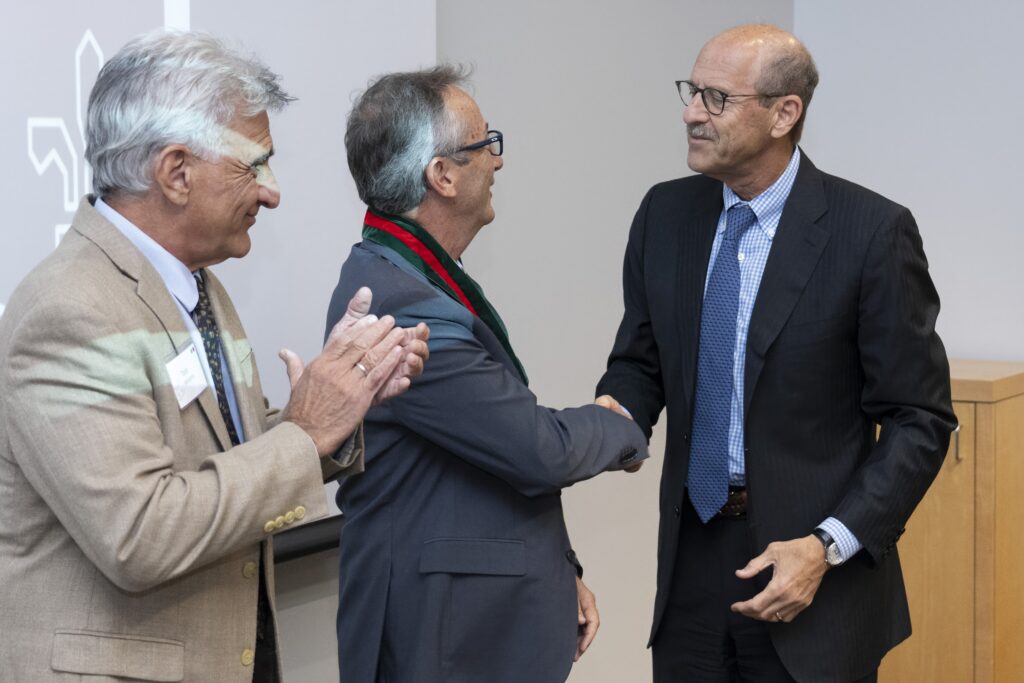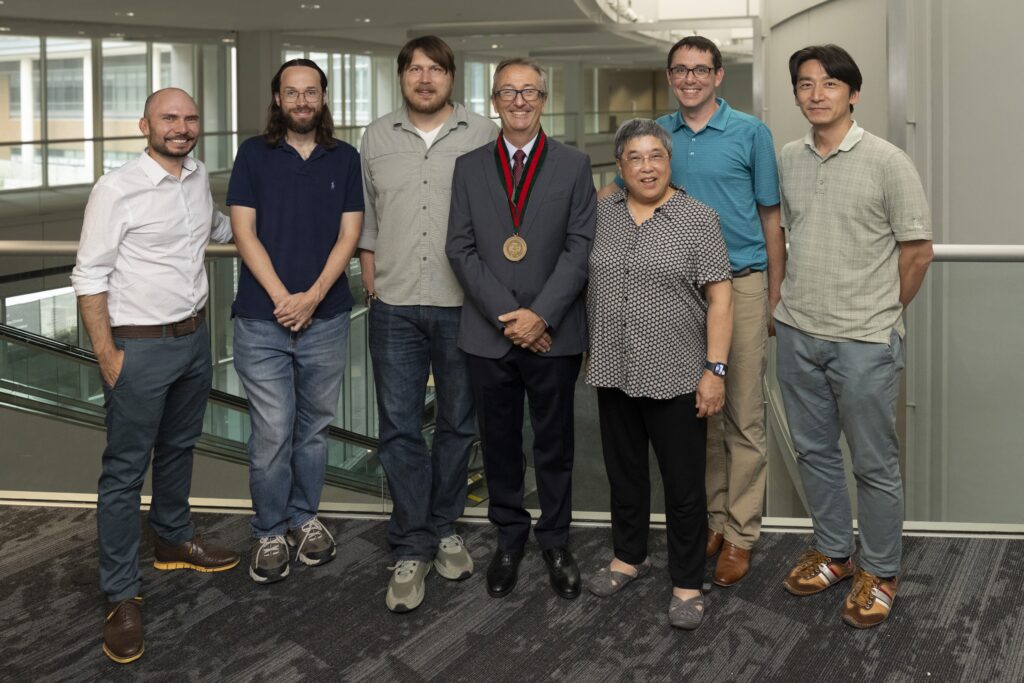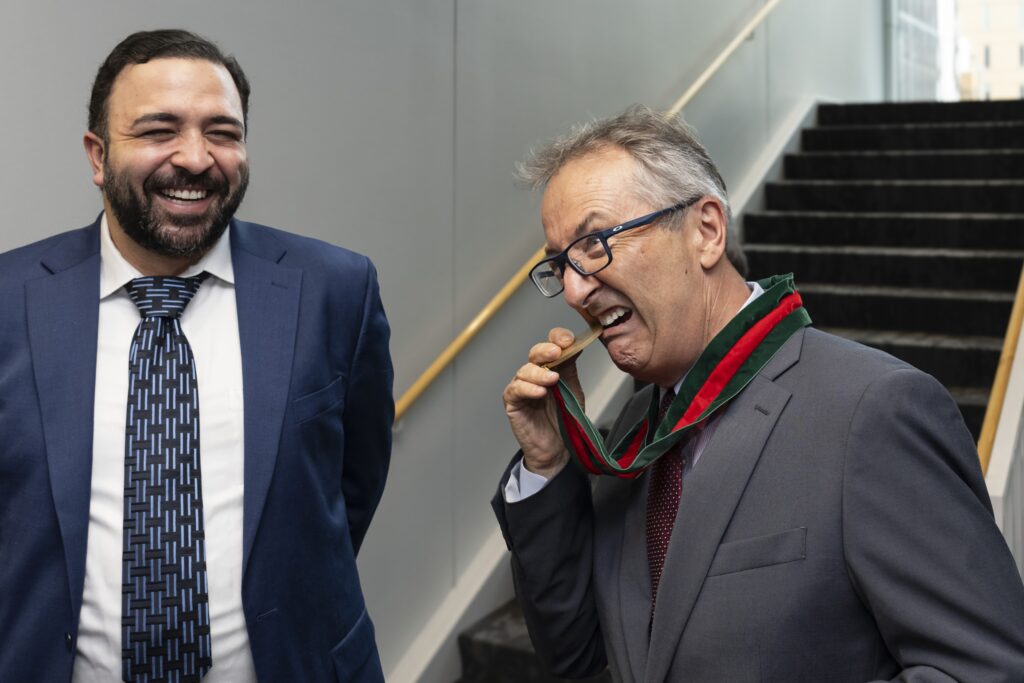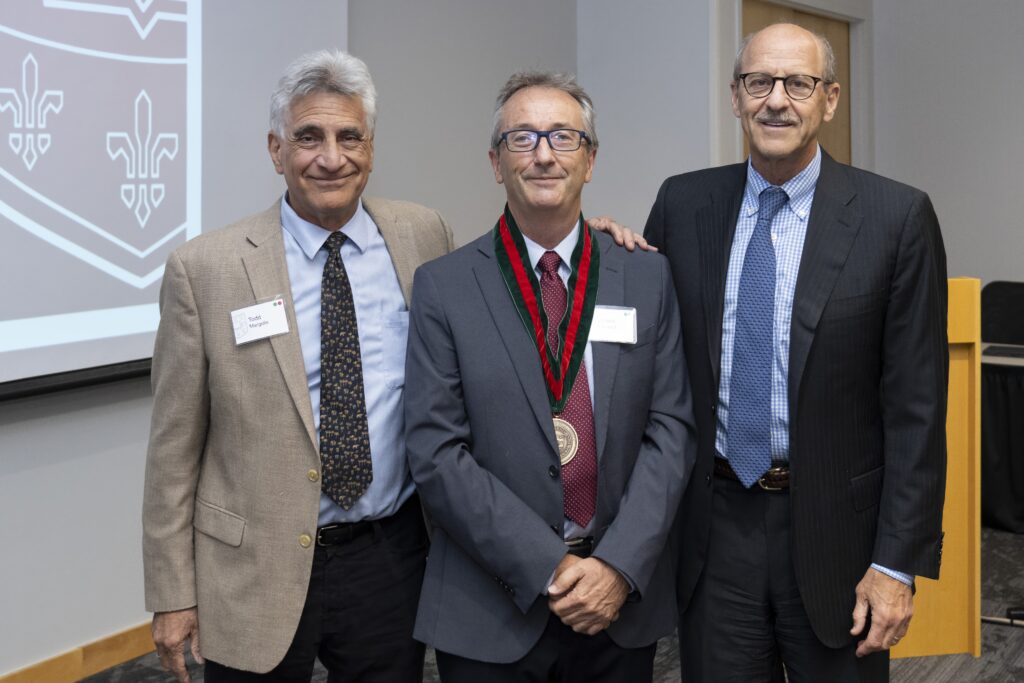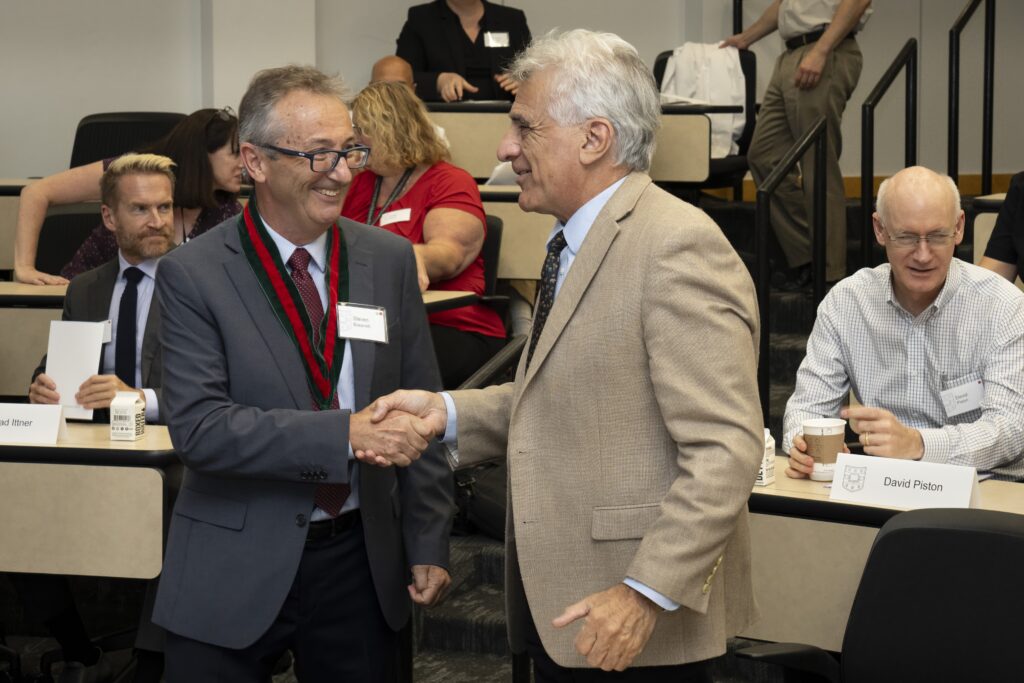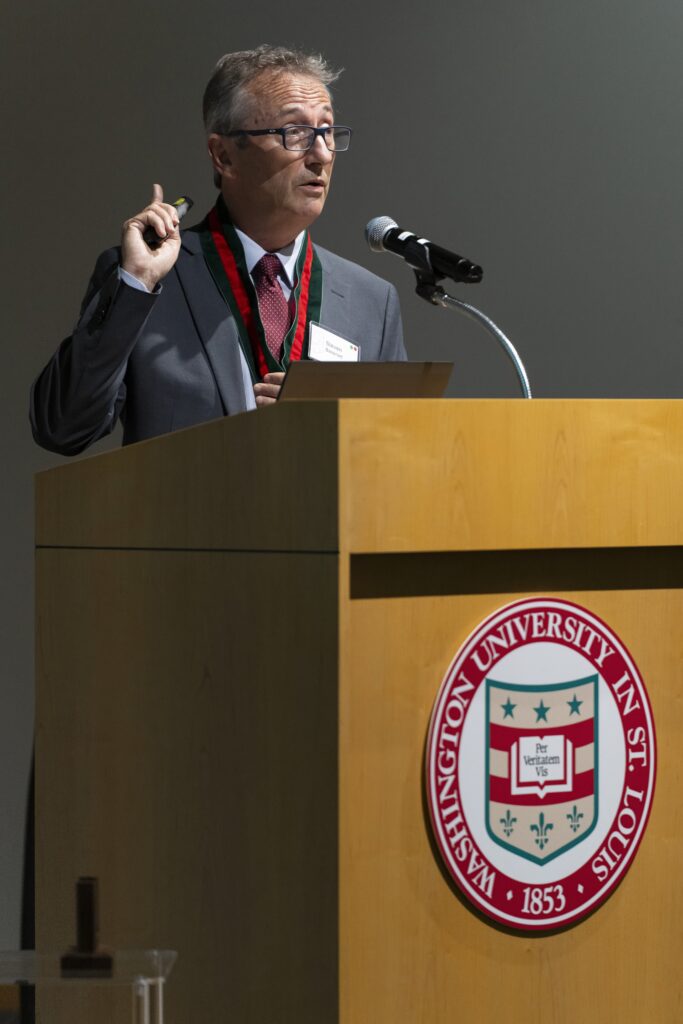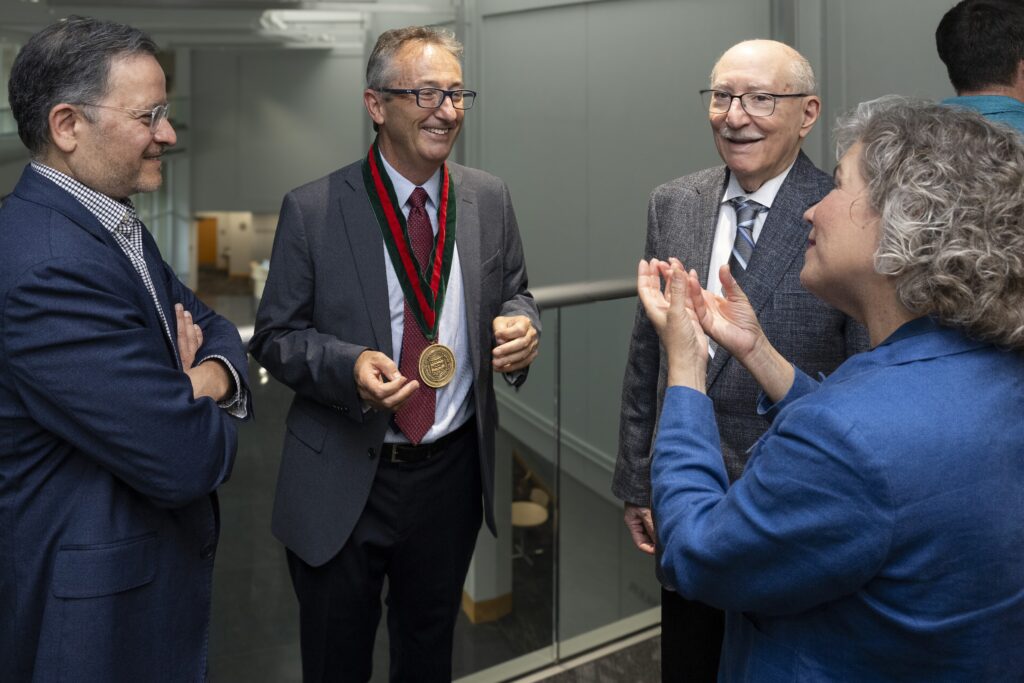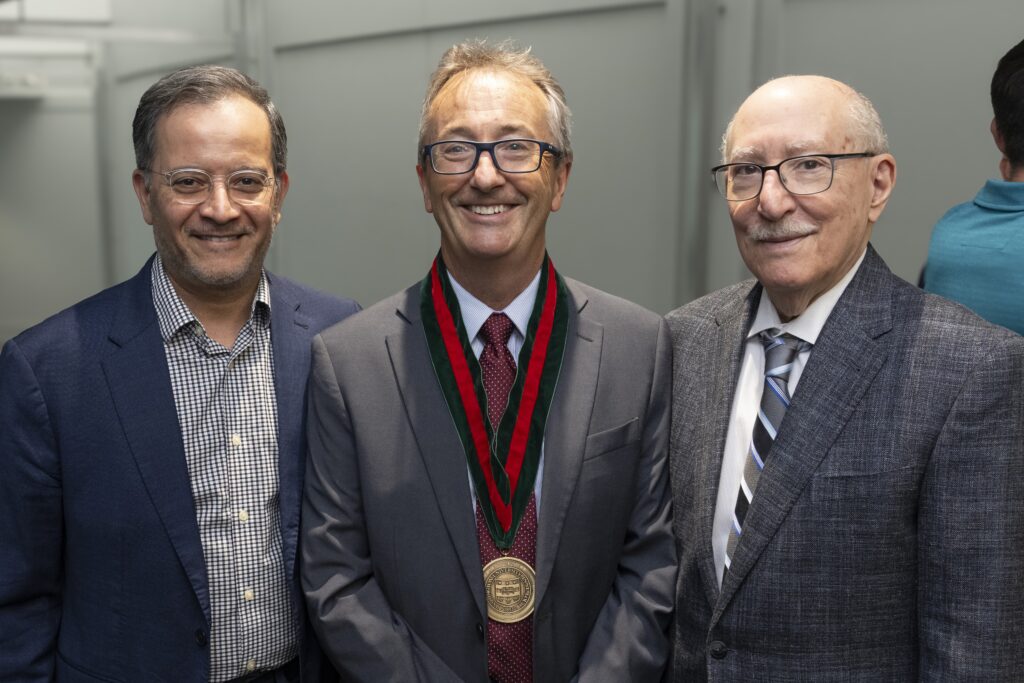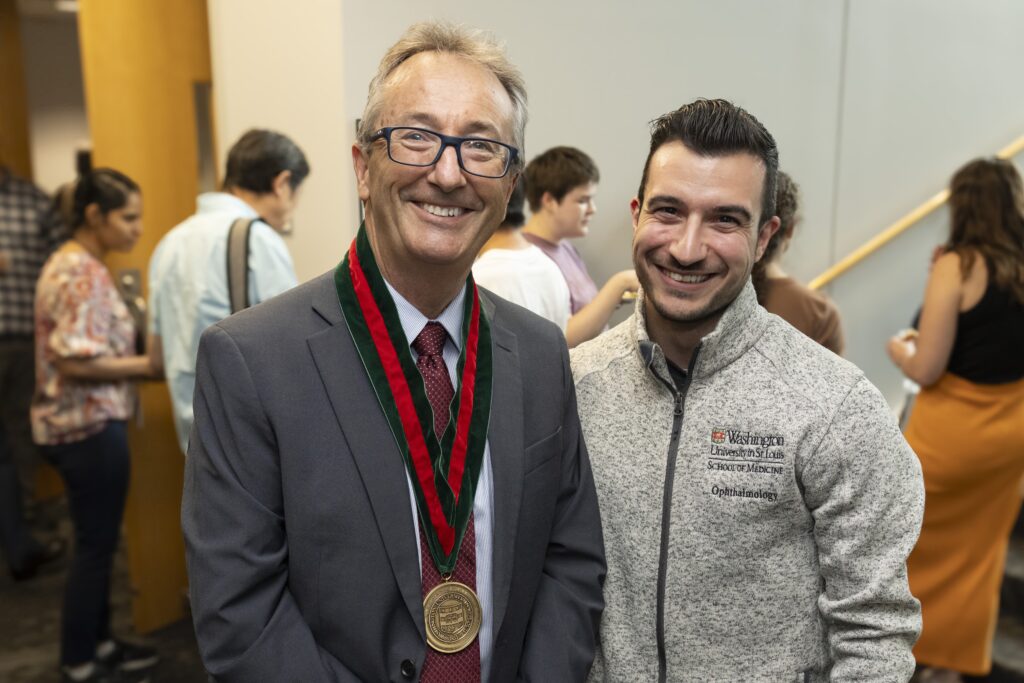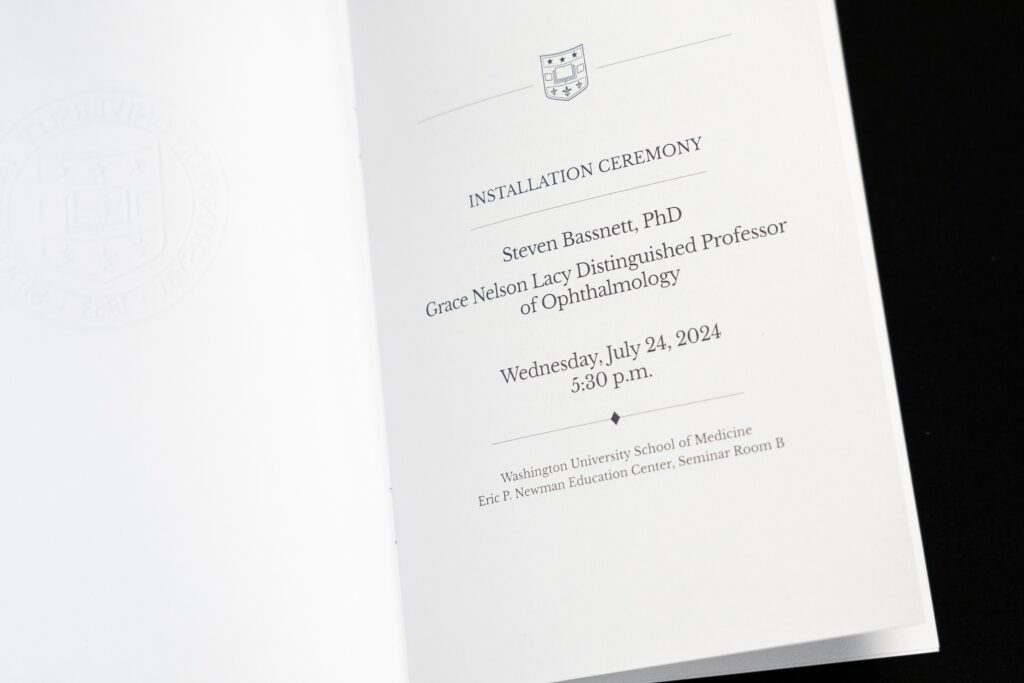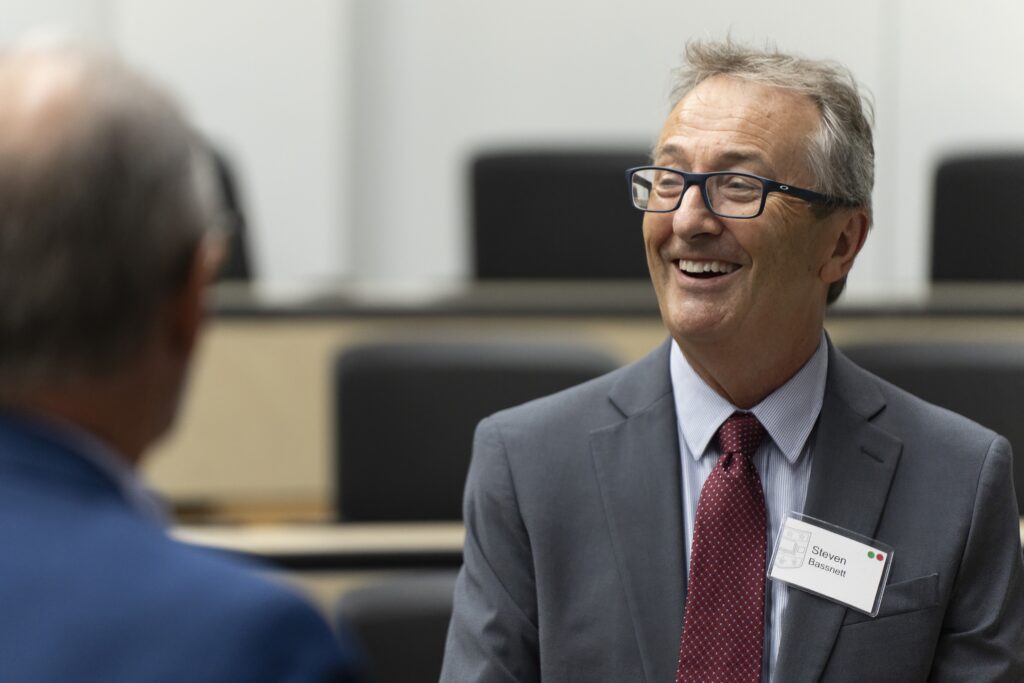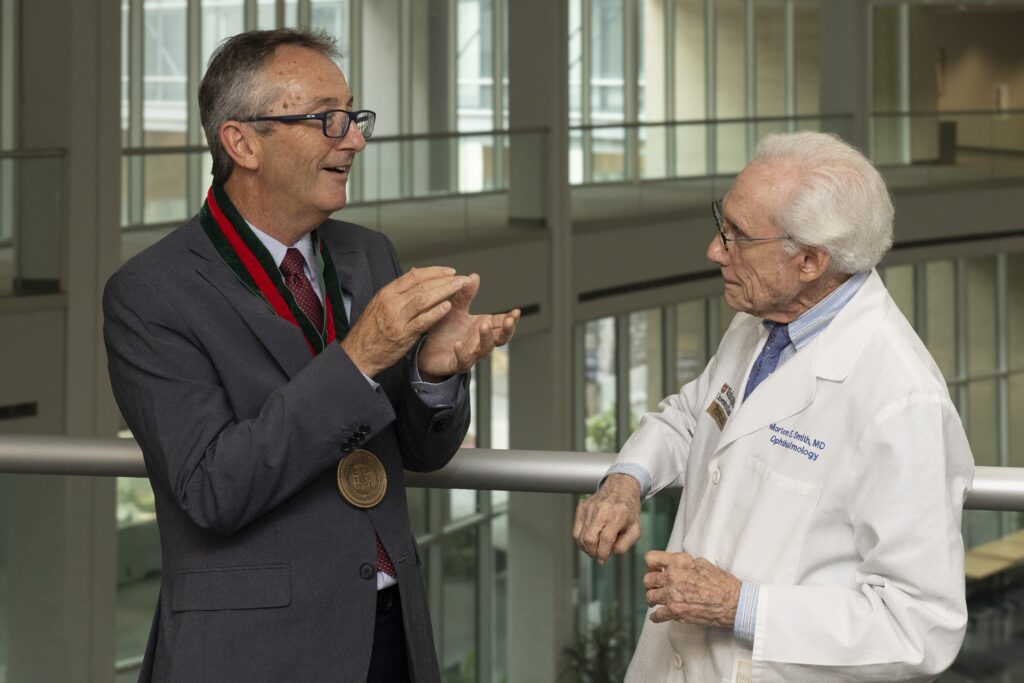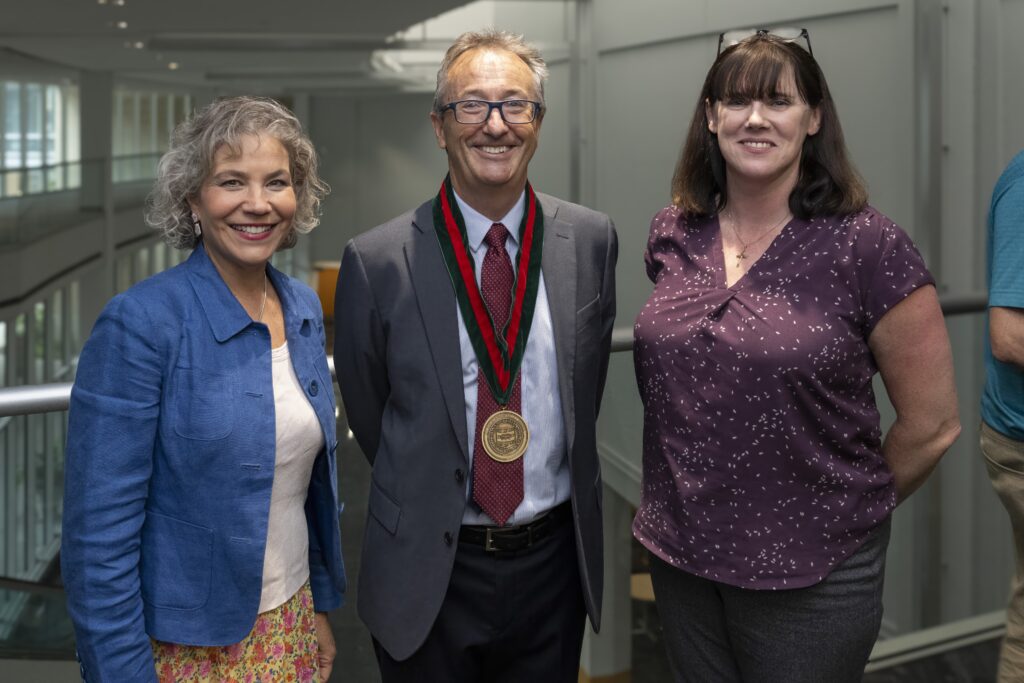On July 24, 2024, the Washington University School of Medicine celebrated the installation of Steven Bassnett, PhD, as the Grace Nelson Lacy Distinguished Professor of Ophthalmology. The event brought together esteemed colleagues, friends, and family to honor Dr. Bassnett’s remarkable contributions to the field of vision research.
This was a wonderful honor for me personally and a fitting tribute to all the students, researchers, and technical staff whose hard work makes everything possible. The Lacy endowment will enable us to pursue an ambitious research agenda, particularly in glaucoma research. Such studies would surely be near and dear to Mrs. Lacy, who herself struggled with this disease for many years.
Steven Bassnett, PhD
Grace Nelson Lacy Distinguished Professor of Ophthalmology and Visual Science
The ceremony commenced with a warm welcome and opening remarks by David H. Perlmutter, MD, Executive Vice Chancellor for Medical Affairs, Spencer T. and Ann W. Olin Distinguished Professor, and George and Carol Bauer Dean of the School of Medicine. Dr. Perlmutter highlighted the significance of the Grace Nelson Lacy Distinguished Professorship and its enduring legacy.
Dr. Bassnett’s work exemplifies the very premise of our belief that basic science is the key to advances in medicine and his work on the lens, how it develops and how it evolves over a lifetime is truly fascinating above and beyond its importance to normal visual functioning and how it is impacted by diseases like Marfan’s Syndrome and other connective tissue and inflammatory diseases.
David H. Perlmutter, MD
Executive Vice Chancellor for Medical Affairs and Dean of Washington University School of Medicine.
Todd P. Margolis, MD, PhD, Alan A. and Edith L. Wolff Distinguished Professor and Chair of Ophthalmology and Visual Sciences, introduced Dr. Steven Bassnett. Dr. Margolis praised Dr. Bassnett’s collaborative approach and dedication to scientific excellence continue to inspire the ophthalmology community.
Z is for Zonule
Dr. Bassnett presented a short lecture on the ciliary zonule, the system of fibers that suspends the lens in the eye. In certain diseases, the zonular fibers break, causing the lens to become untethered within the eye. Dr. Bassnett explained how his laboratory identified the set of proteins comprising the zonule and developed techniques to measure how each component contributes to the fibers’ strength and durability. The composition of the zonular fibers resembles that of material that accumulates in the eyes of patients with exfoliation glaucoma. His lecture was concluded by describing the discovery of a biomarker that may, in the future, help diagnose this sight-threatening condition.
About Grace Nelson Lacy
Grace Nelson Lacy, a Washington University alumna and retired educator, established the Grace Nelson Lacy Distinguished Professorship in 1997. Mrs. Lacy devoted her career to teaching and developing innovative programs that integrated arts and humanities into school curricula. She won numerous awards, including three Freedom Foundation Awards and the Bold Journey Teacher of the Year Award.
In the early 1960s, Mrs. Lacy collaborated with the New York State Department of Education and the National Gallery of Art to promote art appreciation among youth, a program conceived by Jacqueline Kennedy. She developed multimedia materials and trained teachers, significantly influencing art education.
Mrs. Lacy began to suffer from glaucoma in her early 40s and became a passionate advocate for vision research. She received the School of Medicine’s 2nd Century Award in 1998. Although she passed away in 2006, her legacy endures through the professorship, supporting advancements in ophthalmology.
About Steven Bassnett, PhD
Steve Bassnett was born in Liverpool, England. As a child, he was captivated by Jacques Cousteau’s underwater adventures on the BBC and dreamed of joining Cousteau on his boat, “Calypso,” to swim with dolphins. This passion led him to study Marine Biology at the University of Wales. However, upon graduating, he realized that job opportunities in this field were limited and unappealing, leading him to transition to biophysics. He earned his PhD from the University of East Anglia, focusing on intracellular pH regulation in the eye lens.
Dr. Bassnett moved to the US for a postdoctoral position in David Beebe’s laboratory at the Uniformed Services University in Bethesda. Here, he gained expertise in cell and developmental biology of the eye and secured his first R01 grant to study lens transparency mechanisms. Later, he joined Washington University, where he and colleague Alan Shiels identified the first gene for inherited cataracts, earning him the Cataract Research Award from the National Foundation for Eye Research.
In his current research, Dr. Bassnett focuses on the ciliary zonule, the extracellular fibers crucial for the eye’s focusing mechanism. His work has provided insights into conditions like Marfan Syndrome and exfoliation glaucoma. Dr. Bassnett’s contributions are widely recognized, and he has continuously secured NEI funding since joining Washington University.
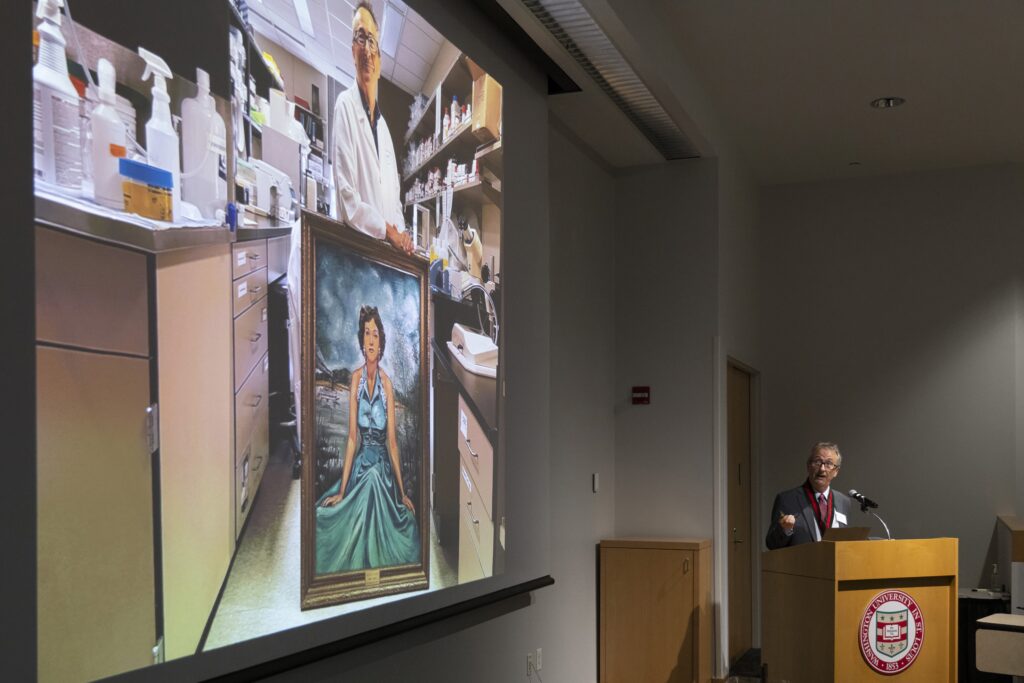
The installation ceremony was a testament to Dr. Bassnett’s exceptional achievements and the enduring support of the Grace Nelson Lacy Distinguished Professorship in advancing vision research.
